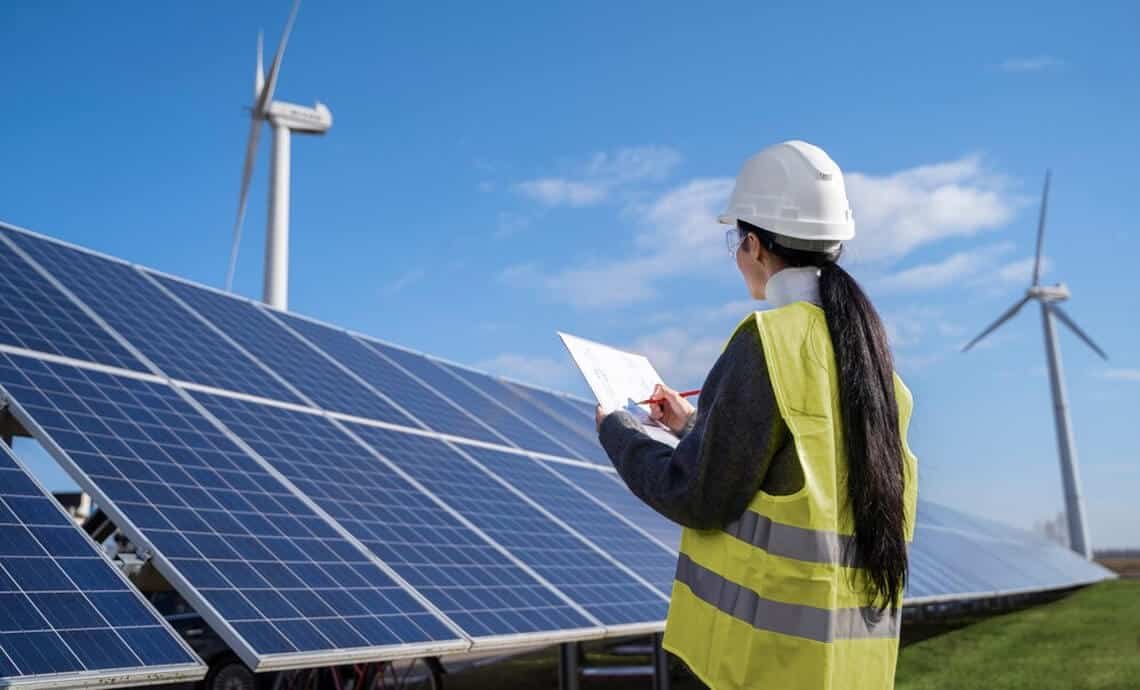Nowadays solar power is in trend. Solar power has emerged as a popular choice for providing clean and renewable energy sources for electricity. While, in the recent few years the usage of solar panels have been increased a lot, especially in homes and businesses. Thus, it is very important to understand how these devices work and contribute to the energy grid is more important than ever.
This article will discuss all the basics about the solar panels. Also, we will explore their workings, benefits, and impact on energy.
Something About Solar Energy
Solar energy, radiant light, and heat from the sun have been used to warm humans for centuries. However, the recent advancements in solar panel technology have revolutionized the whole ability to tap into this abundant energy source. Solar or photovoltaic (PV) panels convert sunlight directly into electricity, presenting a sustainable solution to meet our energy needs.
What is the Composition and Function of Solar Panels?
Solar panels are made up of smaller units known as solar cells. Each solar cell is made up of silicon, phosphorus, and boron layers, which create an electric field. While, when sunlight strikes these cells, it charges the electrons, causing them to flow and generate an electric current. This whole process known as the photovoltaic effect, is the cornerstone of solar energy generation.
Process of Energy Generation From Sunlight to Electricity
The electricity produced by solar panels is in the form of direct current (DC). However, most homes and the power grid operate on alternating current (AC). This is where the solar inverter comes in, converting DC into AC, making the electricity usable for household appliances and feeding into the grid.
Solar Panels & Energy Grid
When solar panels generate more electricity than a home needs, the excess energy can be sent to the grid. This process, is known as net metering. This whole step allows homeowners to earn credits for the surplus power their solar installation contributes. It’s a symbiotic relationship where homes can draw energy from the grid when low solar production ensures a consistent energy supply.
Energy Storage Solutions
Solar batteries have become increasingly popular in solar installations, allowing excess solar energy storage. These batteries provide power during the night or on cloudy days, enhancing the independence and efficiency of a solar energy system.
Benefits of Solar Energy
Adopting solar energy is not just about reducing carbon footprints; it’s also about financial stability for homeowners. Solar installations can lead to a lot of savings on electricity bills.
While on the other hand with the decrease in the cost of solar technology solar is now considered to be much more accessible than ever. Furthermore, unlike fossil fuels, solar energy is an inexhaustible resource, making it a key player in the pursuit of sustainable energy production.
Future of Solar Energy
The future of solar power is expected to be really bright with ongoing advancements in solar technology making it more efficient and affordable.
Different innovations such as higher efficiency solar cells and solar arrays that can track the sun’s movement are helping and making the way for more effective energy production. The role of solar power in meeting our future energy needs continues to expand, signaling a shift towards a more sustainable and environmentally friendly energy landscape.
Concluding Thoughts
Thus, solar panels represent a leap forward in our ability to generate using renewable energy. By understanding how these devices work and their role in energy generation and grid support, we can appreciate the significant strides being made in the field of solar power.
Whether it’s powering homes, contributing to the energy grid, or reducing our environmental impact, solar energy is a key component in the global shift towards cleaner, renewable sources of power.
However, by adopting solar power, we not only meet our current energy needs but also invest in a sustainable future. Integrating solar panels into our energy grid is not just a technological achievement; it’s a testament to our commitment to preserving our planet for future generations.

 Technology8 months ago
Technology8 months ago
 Celebrity3 months ago
Celebrity3 months ago
 Health7 months ago
Health7 months ago
 Business9 months ago
Business9 months ago


















